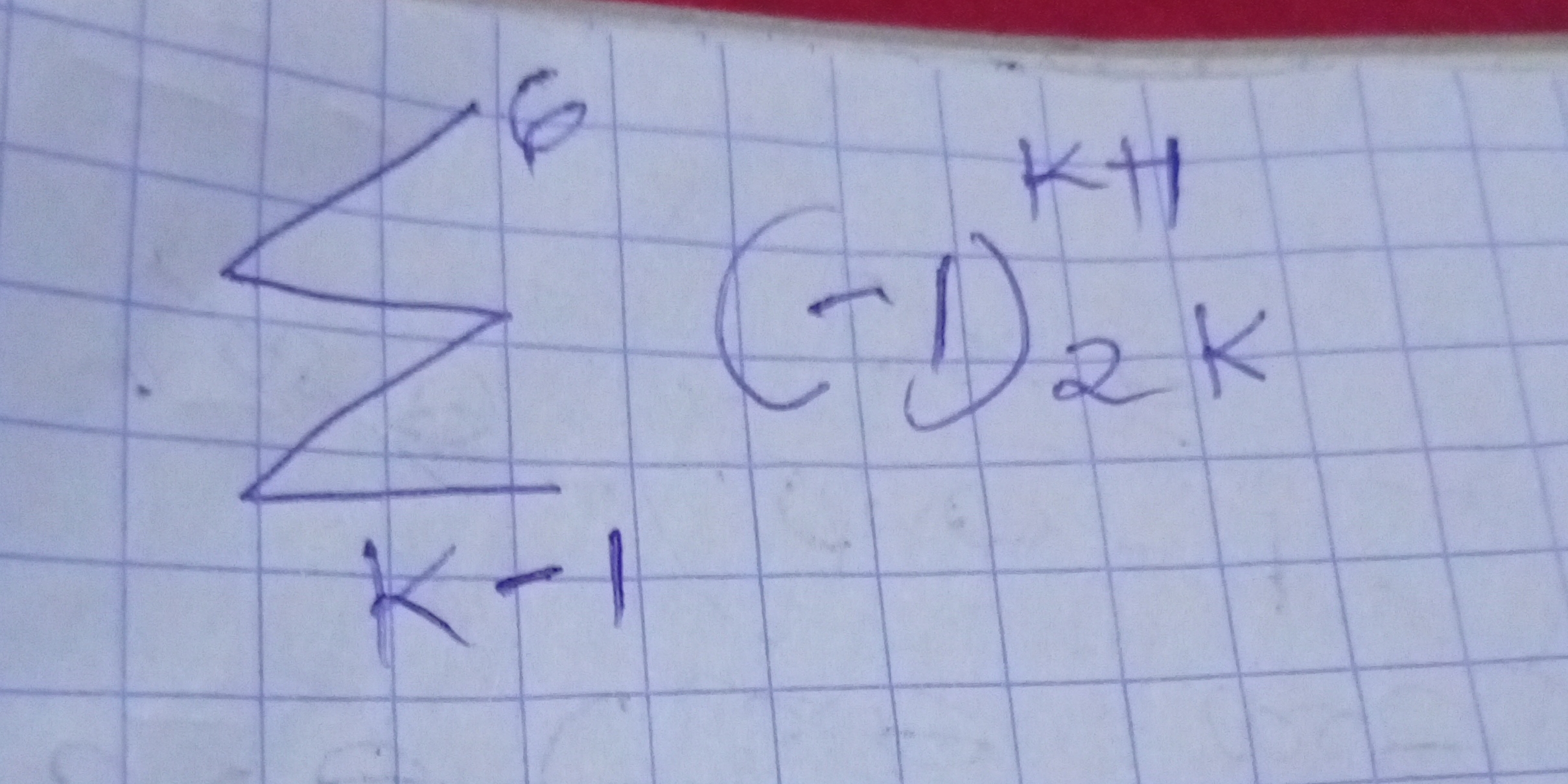∑ (from K-1 to 6) [[(-1)(2K)]]

Understand the Problem
The question appears to be related to a mathematical summation involving a variable K, perhaps with constraints or conditions. The expression may involve a summation notation and possibly manipulations or conditions to find a result.
Answer
The final answer is \( -42 \).
Answer for screen readers
The final result of the summation ( \sum_{K=1}^{6} (-1)(2K) ) is ( -42 ).
Steps to Solve
- Set Up the Summation Expression
We need to evaluate the summation ( \sum_{K=1}^{6} (-1)(2K) ). This means we will find the value of the expression ((-1)(2K)) for each integer (K) from 1 to 6.
- Evaluate the Expression for Each K
Let's calculate the expression for each value of (K):
- For (K = 1): ((-1)(2 \cdot 1) = -2)
- For (K = 2): ((-1)(2 \cdot 2) = -4)
- For (K = 3): ((-1)(2 \cdot 3) = -6)
- For (K = 4): ((-1)(2 \cdot 4) = -8)
- For (K = 5): ((-1)(2 \cdot 5) = -10)
- For (K = 6): ((-1)(2 \cdot 6) = -12)
- Add the Results Together
Now we add the values obtained from the summation: [ -2 + (-4) + (-6) + (-8) + (-10) + (-12) = -2 - 4 - 6 - 8 - 10 - 12 ]
- Compute the Total Sum
Calculating the total step-by-step: [ -2 - 4 = -6 ] [ -6 - 6 = -12 ] [ -12 - 8 = -20 ] [ -20 - 10 = -30 ] [ -30 - 12 = -42 ]
- Final Result
The total sum is ( -42 ).
The final result of the summation ( \sum_{K=1}^{6} (-1)(2K) ) is ( -42 ).
More Information
This result is derived from evaluating the expression for each value of (K) within the specified limits and summing those evaluations. Each term contributes negatively due to the factor of (-1) in the expression.
Tips
- Forgetting to substitute the correct values for (K) before summing.
- Miscalculating the individual terms, especially with negative values.
- Adding the terms incorrectly, which can lead to wrong final results.
AI-generated content may contain errors. Please verify critical information